Your search “Keep the Death Penalty Abolished fin the Philippfines /page/www.deathpenaltyindia.com/img/pages/resources/2017Statistics.pdf ”

Article(s)
How Likely Is the Return of the Death Penalty in Israel?
By World Coalition against the Death Penalty, on 22 May 2023
Early 2023, the newly elected government of Israel announced an ensemble of judicial reforms; including a new bill that would introduce the death penalty for acts of terrorism. As of May 2023, the judicial reforms have been put on hold by the PM Netanyahu. This article takes a historical perspective to recontextualize the issue of […]
2023
Israel
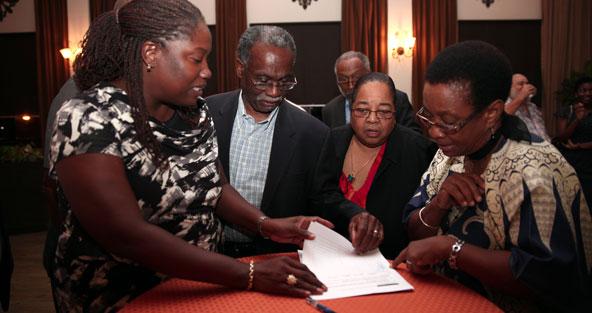
Article(s)
Events, strong words and hard facts to fight death penalty in the Caribbean
By Thomas Hubert, on 11 October 2013
As World Day Against the Death Penalty events unfolded on an unprecedented scale across the region, local activists and international organisations took a firm stance against capital punishment across the Caribbean.
2013
Bahamas
Barbados
Belize
Guatemala
Jamaica
Public Opinion
Puerto Rico
Saint Kitts and Nevis
Trinidad and Tobago

Article(s)
Violations of the Right to Life in the Context of Drug Policies
By International Harm Reduction Association (IHRA), Corporación ATS Acción Técnica Social, IDPC Consortium, Washington Office on Latin America, non-governmental organizations in special consultative status, Anti-Death Penalty Asia Network (ADPAN); Capital Punishment Justice Project (CPJP); Centre on Drug Policy Evaluation (CDPE); Cornell Centre on the Death Penalty Worldwide; Eleos Justice - Monash University; Instituto RIA, AC; Iran Human Rights (IHR); World Coalition Against the Death Penalty., NGO(s) without consultative status, also share the views expressed in this statement, on 10 August 2021
Harm Reduction International and co-signatories congratulate Mr Tidball-Binz on his appointment as Special Rapporteur on summary executions. With this statement, we highlight key violations of the right to life enabled by repressive drug policies or reported in the context of drug law enforcement; and encourage this Rapporteur to pay specific attention to the impact of […]
2021
Death Row Conditions
Drug Offenses
Fair Trial
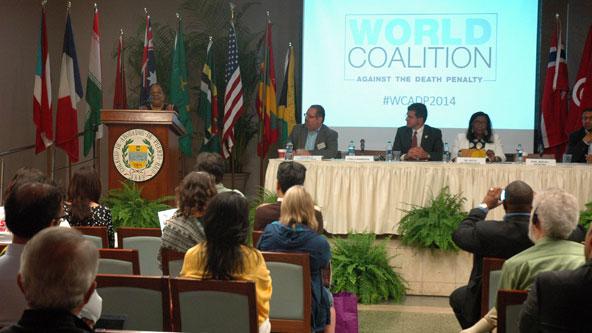
Article(s)
World Coalition raises mental health issues in administration of the death penalty
By Thomas Hubert (in San Juan, Puerto Rico), on 22 June 2014
World abolitionists gathered in Puerto Rico between 20-22 June to take stock on progress in the crucial Caribbean region and prepare for the next round of the fight against the death penalty.
2014
Puerto Rico
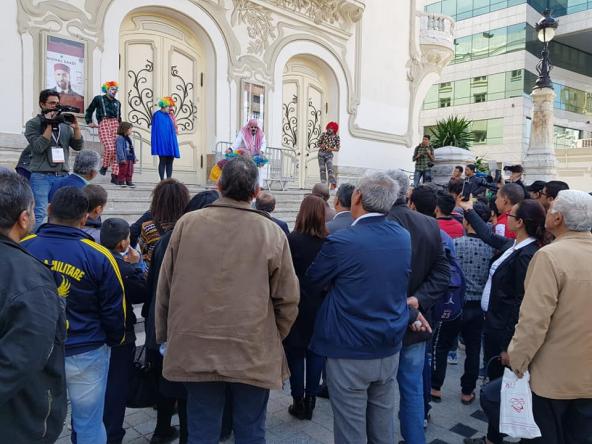
Article(s)
Arab League Summit: the death penalty at the heart of the alternative summit organized by civil society
By Hédia Zaalouni, on 10 May 2019
On the occasion of the 30th session of the Arab League Summit, which took place in Tunis from 26 to 31 March 2019 and brought together 21 Arab delegations, a parallel counter-summit, organized by civil society, was held to address the issue of human rights in the Arab world.
2019
Tunisia
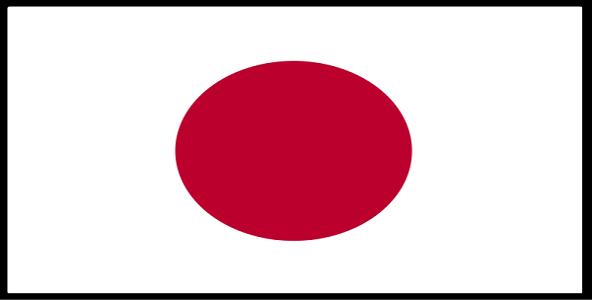
Article(s)
Joint statement of the death penalty in Japan
By Center for Prisoners' Rights and Japan Innocence & Death Penalty Information Center, on 30 March 2018
Joint Statement signed by Center for Prisoners’ Rights and Japan Innocence & Death Penalty Information Center to to call Japanese government for a sincere dialogue while condemning the government for refusing a dialogue with international communityand not accepting capital punishment as a human rights issue.
2018
Japan
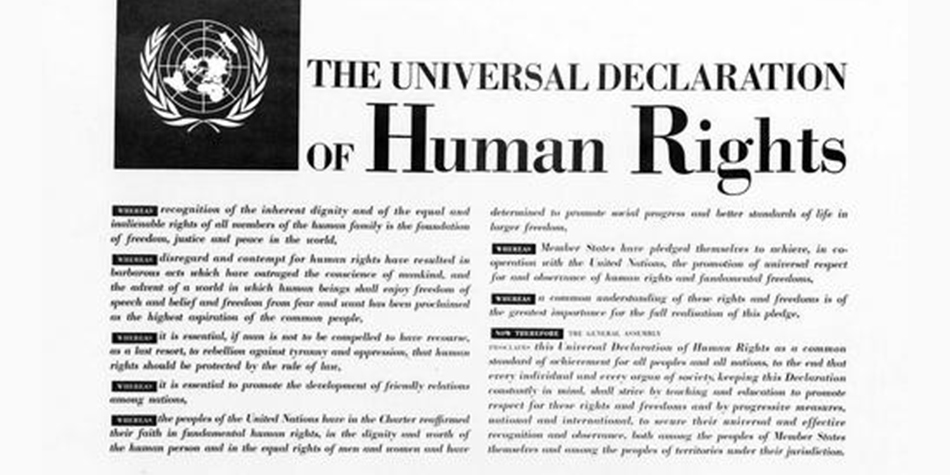
Article(s)
Statement on the occasion of the International Human Rights Day
By World Coalition Against the Death Penalty, on 10 December 2020
Humanity and the global human rights movement, including the World Coalition Against the Death Penalty, are celebrating the 72nd anniversary of the adoption of the Universal Declaration of Human Rights on 10 December 1948. This day has been commemorated by the United Nations as International Human Rights Day.
2020
Moratorium

Article(s)
Plans to carry out arbitrary executions in Myanmar must halt immediately
By World Coalition Against the Death Penalty , on 23 June 2022
The undersigned organizations are gravely concerned at the recent announcement by the military authorities of Myanmar that the death sentences imposed on four people after grossly unfair proceedings have been approved for implementation.
2022
Cruel, Inhuman and Degrading Treatment and Punishment
Fair Trial
Legal Representation
Myanmar
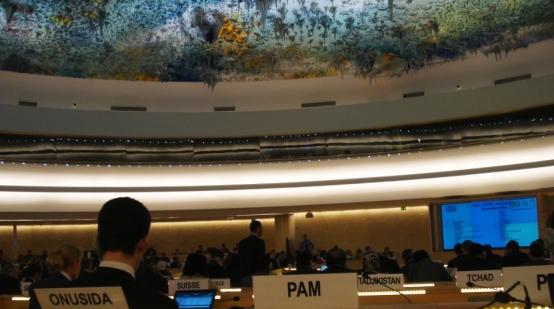
Article(s)
Children of people sentenced to death attract the UN’s attention
By Léa Macarez, on 19 September 2013
The UN Human Rights Council brought together representatives from civil society, States and the UN itself to discuss the rights of children whose parents are sentenced to death or executed.
2013
Juveniles
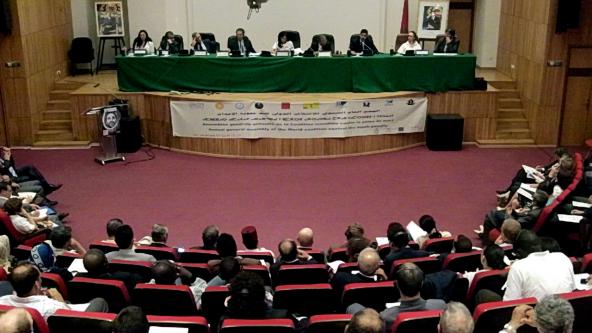
Article(s)
Arab spring at the heart of World Coalition debates
on 26 June 2011
International abolitionists gathered in Morocco have discussed the recent wind of change in the region and the resulting hope for the abolition of the death penalty.
2011
Cruel, Inhuman and Degrading Treatment and Punishment
Iraq
Morocco
Terrorism
Tunisia
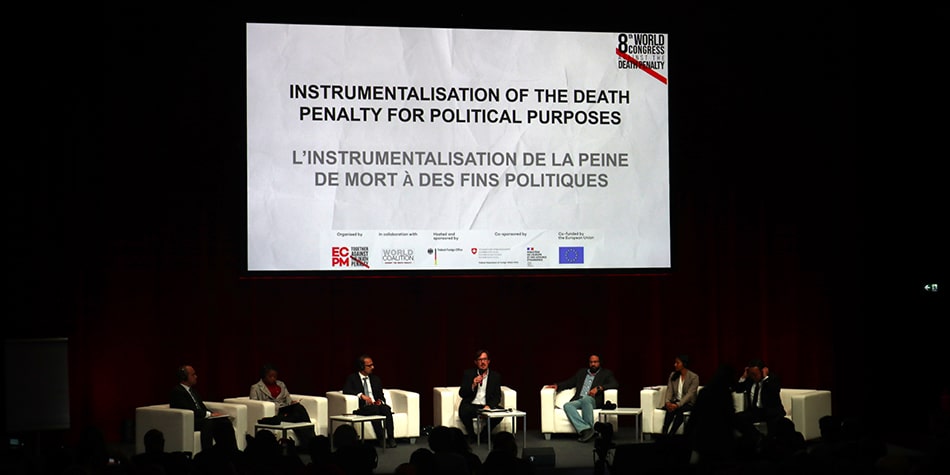
Article(s)
How the Death Penalty is Politicized: A Reflection on the 8th World Congress Against the Death Penalty
By Dunia Schaffa, on 27 January 2023
During the 8th World Congress Against the Death Penalty, in Berlin Germany, the phrase “the death penalty is being used as a political tool” was used frequently – in panels, in round tables, in speeches, even amongst the participants getting a coffee in between Congress events.
2023
Iran (Islamic Republic of)
United States

21st World Day Against the Death Penalty – The death penalty: An irreversible torture
on 12 June 2023
2023
Cruel, Inhuman and Degrading Treatment and Punishment
Death Row Conditions

Article(s)
TAIWAN: CONSTITUTIONAL COURT TO HEAR CHALLENGE TO DEATH PENALTY LAW
By World coalition against the death penalty, Amnesty International, on 23 April 2024
On 23 April 2024 the Constitutional Court of Taiwan will hear a challenge on the constitutionality of the death penalty in the country. Amnesty International Taiwan and the World Coalition Against the Death Penalty are among several non-governmental organizations intervening in the case, in support of the full abolition of the death penalty.
2024
Taiwan
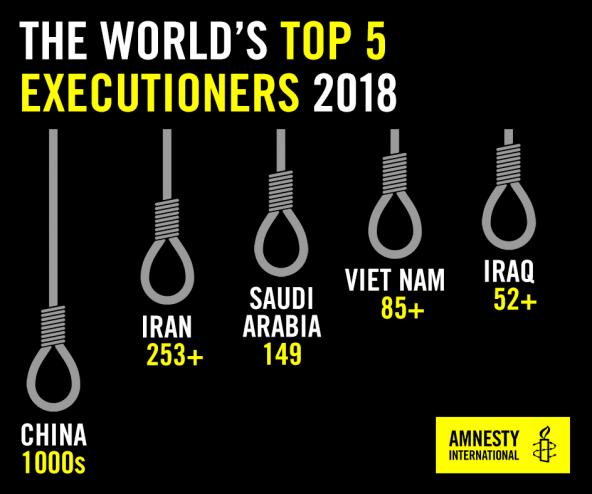
Article(s)
Death penalty 2018: Dramatic fall in global executions
By Amnesty International, on 10 April 2019
Despite a rise in executions in some countries, global executions fell by 31% in 2018. The universal fight for the abolition of the death penalty seems to be on the right way.
2019
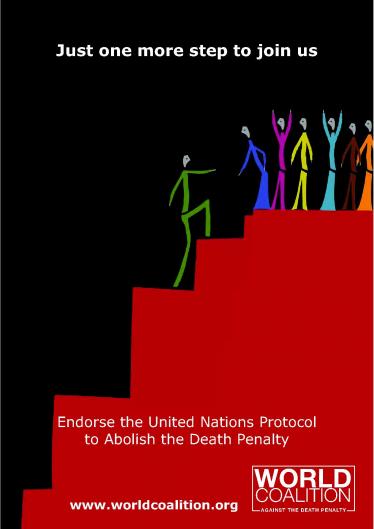
Just One More Step: Ratifying International and Regional Protocols
on 28 March 2022
As of 10 June 2024, 91 of the 173 States parties to the ICCPR have ratified or acceded to its Second Optional Protocol aiming at the abolition of the death penalty, most recently Côte d’Ivoire (3 May 2024), Kazakhstan (24 March 2022), Armenia (18 March 2021), Angola (2 October 2019) and the State of […]
2022
Central African Republic
Chad
Congo
Fiji
Ghana
Marshall Islands
Samoa
Sierra Leone
Suriname
Zambia
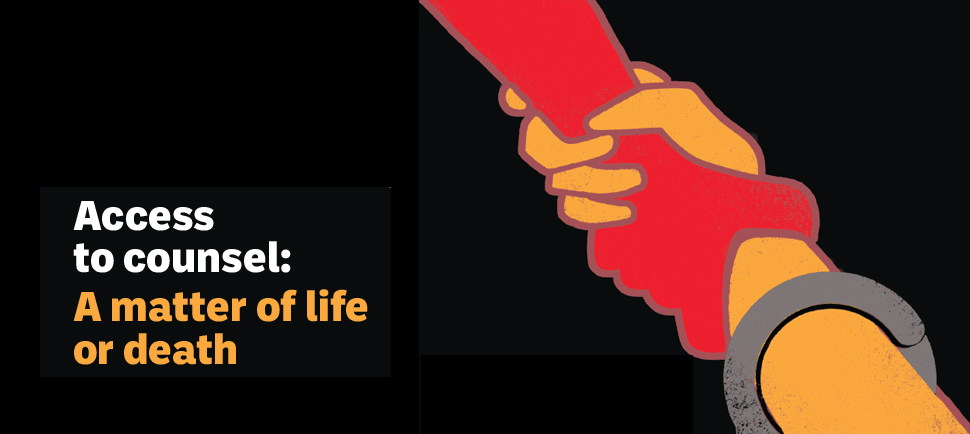
Article(s)
The 18th World Day Against the Death Penalty Highlights the Life-Saving Importance of Effective Legal Representation in Capital Cases
By Gia Tongson, on 18 November 2020
The 18th World Day Against the Death Penalty explored the theme “Access to Counsel: A Matter of Life or Death” in light of the continued execution of individuals who struggle to have adequate support from their lawyers, who consequently also face their own challenges in the judicial system. Having access to qualified and effective representation […]
2020
Australia
Belgium
Canada
Congo
Egypt
Fair Trial
France
Kazakhstan
Philippines
Portugal
Uganda
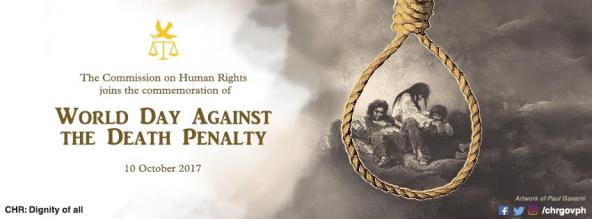
Article(s)
The Commission on Human Rights of the Philippines launches a campaign against the reinstatement of the death penalty in the country
By Thalia Gerzso, on 26 October 2017
Despite its national and international commitment not to carry out any executions, Philippines is taking worrying measures toward the reinstatement of the death penalty for drug offenses. Determined to thwart the government’s plan, the Commission on Human Rights of the Philippines has taken various actions, including an awareness campaign for the 15th World Day Against the Death Penalty.
2017
Philippines
Public Opinion
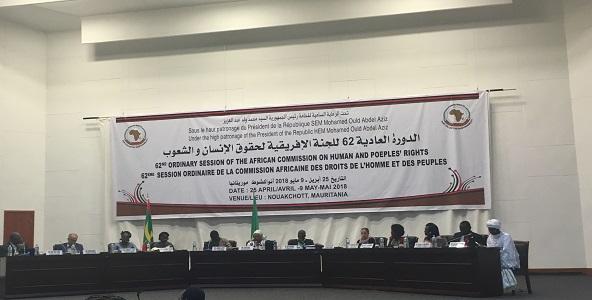
Article(s)
The death penalty at the heart of the debates of the 62nd Ordinary Session of the African Commission on Human and Peoples’ Rights
By Guillaume Colin - Jessica Corredor, on 15 May 2018
The 62nd Ordinary Session of the African Commission on Human and Peoples’ Rights (ACHPR), the African Union body responsible for the promotion and protection of human rights in Africa, was held from April 25th to May 9th, 2018 in Nouakchott, Mauritania.The death penalty was at the heart of the debates throughout this Session, during panel discussions, side-events or during the review of the State’s periodic reports.
2018
Mauritania
Public Opinion
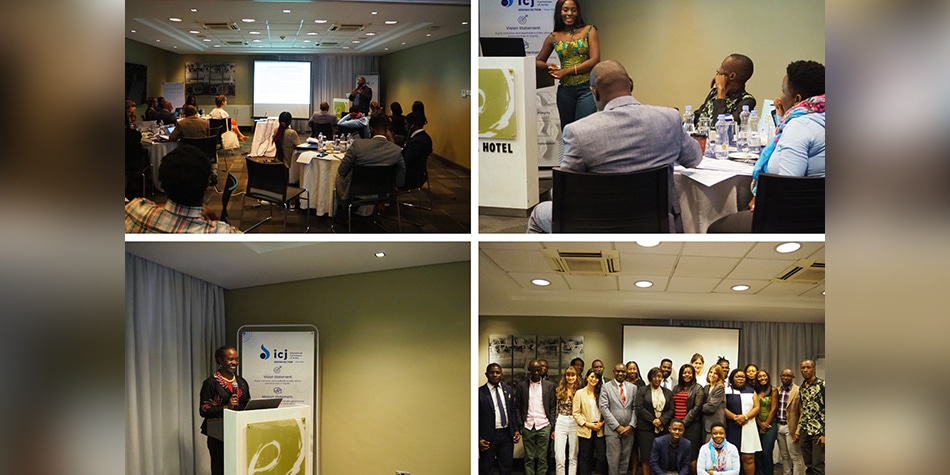
Article(s)
East African Seminar on Best Practices in Kenya: A Key Gathering for the Abolitionist Movement on the Continent
By Wendy Adouki, World Coalition Against the Death Penalty, on 15 August 2023
A privileged moment to exchange on the different abolitionist dynamics in Africa As part of the Africabolition project, the World Coalition Against the Death Penalty (World Coalition) and FIACAT (the International Federation of ACATS) organized a seminar for English-speaking African members from 19-26 June, 2023 in Nairobi, Kenya.
2023
Kenya
Trend Towards Abolition
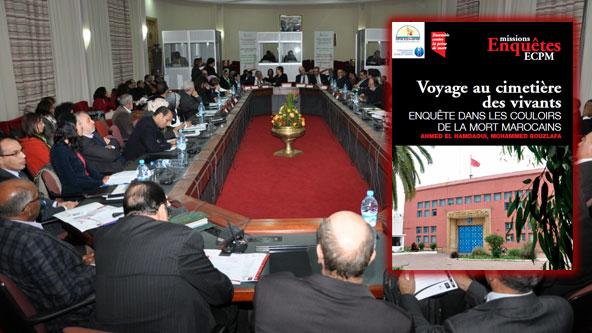
Article(s)
Abolitionist movement shifts up a gear in Morocco
By Thomas Hubert, on 20 December 2013
Through engagement with members of Parliament, the publication of an unprecedented report on death row conditions and the launch of a new website, the Moroccan abolitionist movement is entering a new dimension.
2013
Mental Illness
Morocco
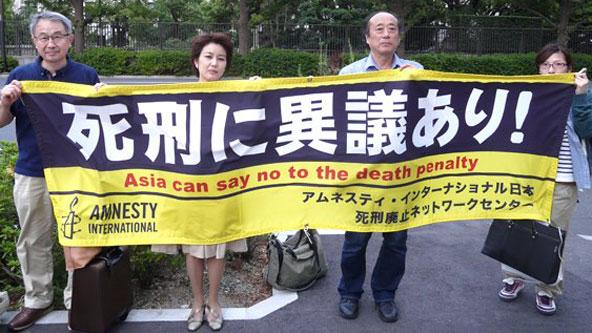
Article(s)
ADPAN network keeps up abolitionist fight
By Anti-Death Penalty Asian Network (ADPAN), on 10 October 2012
The Anti-Death Penalty Asia Network, which was founded on 10 October 2006, is again taking action this World Day Against the Death Penalty and takes stock on 10 years of progress in Asia – and on the challenges ahead.
2012

Article(s)
New Hampshire: 21st State to Abolish the Death Penalty in the USA
By Aurelie Placais, on 12 June 2019
On 30 May 2019, the NH state Senate voted to override the governor’s veto. The death penalty repeal took effect immediately.
2019
United States
Document(s)
Malawi – Committee on the Elimination of Discrimination Against Women – Death Penalty – January 2022
on 31 January 2022
2022
NGO report
World Coalition
Malawi
Women
More details Download [ pdf - 311 Ko ]
Detention conditions for women in Malawi are crowded, and women in prisons are not given adequate food and nutrition. Specifically, many prisons only serve people with one meal a day, often consisting of a maize meal (nsima) and peas or beans. Overcrowded conditions are a particular concern during the COVID-19 pandemic, when risk of transmission of the disease is high. Prison conditions in Malawi amount to inhuman and degrading treatment.
Women in death penalty proceedings in Malawi lack access to qualified legal representation. Defense advocates in Malawi who are assigned to capital cases often lack relevant experience. In at least one case, a lawyer failed to raise the complete defense of self-defense in representing a woman who killed her husband as a result of a long history of domestic abuse. Had the defense been raised, it is possible that the woman would not have been sentenced to death. Moreover, women from poor and marginalized communities are disproportionately affected by the death penalty because when they are accused of crimes, they are often unable to understand the charges against them because they are illiterate and cannot read the complaint against them. They are also unable to retain private counsel.
Women who face extensive gender-based violence are disproportionately affected by the death penalty in Malawi, including those who seek to protect themselves against their abusers. Long histories of gender-based violence can result in complex trauma and can exacerbate psycho-social or intellectual disabilities, yet sentencing courts fail to take these nefarious effects into account as factors in mitigation of a death sentence.
- Document type NGO report / World Coalition
- Countries list Malawi
- Themes list Women

Article(s)
Justice ministers meet as Colosseum lights up to say yes to life
By Community of Sant'Egidio, on 10 December 2012
The Community of Sant’Egidio conducted a crucial political networking exercise in favour of abolition in Rome at the end of November before 1,600 cities lit up their monuments against the death penalty.
2012
Benin
Burundi
Central African Republic
France
Gabon
Italy
Kazakhstan
Kyrgyzstan
Mongolia
Public Opinion
Switzerland
Togo
United States
Uzbekistan
Zimbabwe
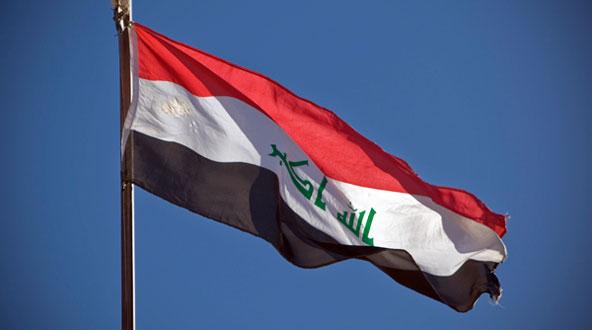
Article(s)
Terrorism is no excuse for unfair trials in Iraq
By Elisa Belotti, on 25 November 2015
Earlier in November, the UN Human Rights Committee released its concluding observations on Iraq’s implementation of the International Covenant on Civil and Political Rights. The Committee and civil society’s representatives specifically dwelled on Iraq’s application of the death penalty.
2015
Fair Trial
Iraq
Iraq
Terrorism
Article(s)
E Book review: a guidebook to the death penalty in Asia
on 10 March 2009
A new, authoritative study sheds a new light on capital punishment across Asia and may help abolitionists enhance their strategies.
2009
China
Japan
Philippines
Republic of Korea
Taiwan
Viet Nam
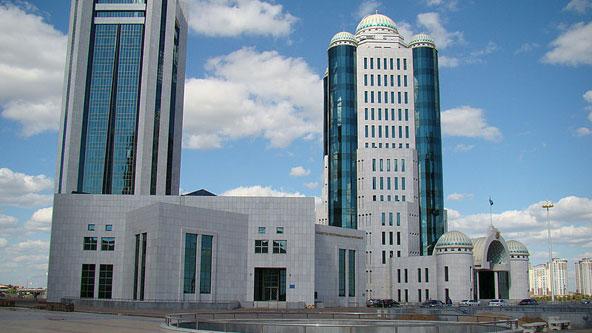
Article(s)
Kazakhstan Penal Code reform runs counter to abolitionist trend
By Anne Souléliac (Paris Bar), on 22 July 2014
The new Kazakh Penal Code provides for an increase in the number of capital crimes, even though Kazakhstan has been moving away from the death penalty for years and has a stated policy of meeting international standards.
2014
Kazakhstan
Kazakhstan
Terrorism
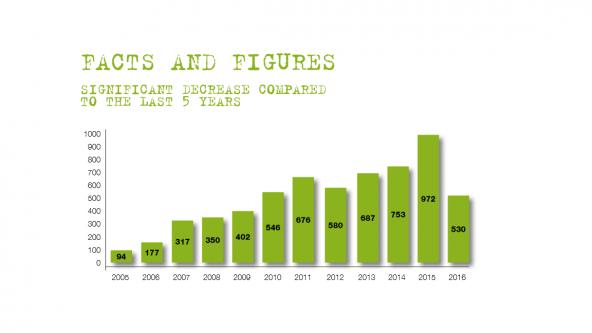
Article(s)
Iran: 2016 a deadly year despite a slight decrease in the executions
By Iran Human Rights, on 6 April 2017
The 9th annual report by Iran Human Rights (IHR)and ECPM (Ensemble contre la peine de mort) on the death penalty in Iran shows that in 2016 at least 530 people were executed in the Islamic Republic of Iran. Although this number is significantly lower than the annual execution numbers from the past five years, Iran remained the country with the highest number of executions per capita.
2017
Iran (Islamic Republic of)
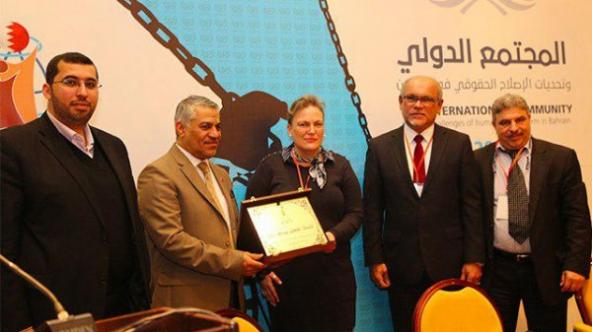
Article(s)
The 6th International Conference on Human Rights issues a warning on the alarming situation in Bahrain
By Emmanuel Trépied and Coalition marocaine contre la peine de mort, on 10 March 2017
The World Coalition was invited to take part in the 6th international Conference on Human Rights, on February 22nd, 2017 in Beirut. addressing the very worrying situation in Bahrain, the event resulted in a series of calls and recommendations.
2017
Bahrain
Cruel, Inhuman and Degrading Treatment and Punishment
Fair Trial
Moratorium
Terrorism
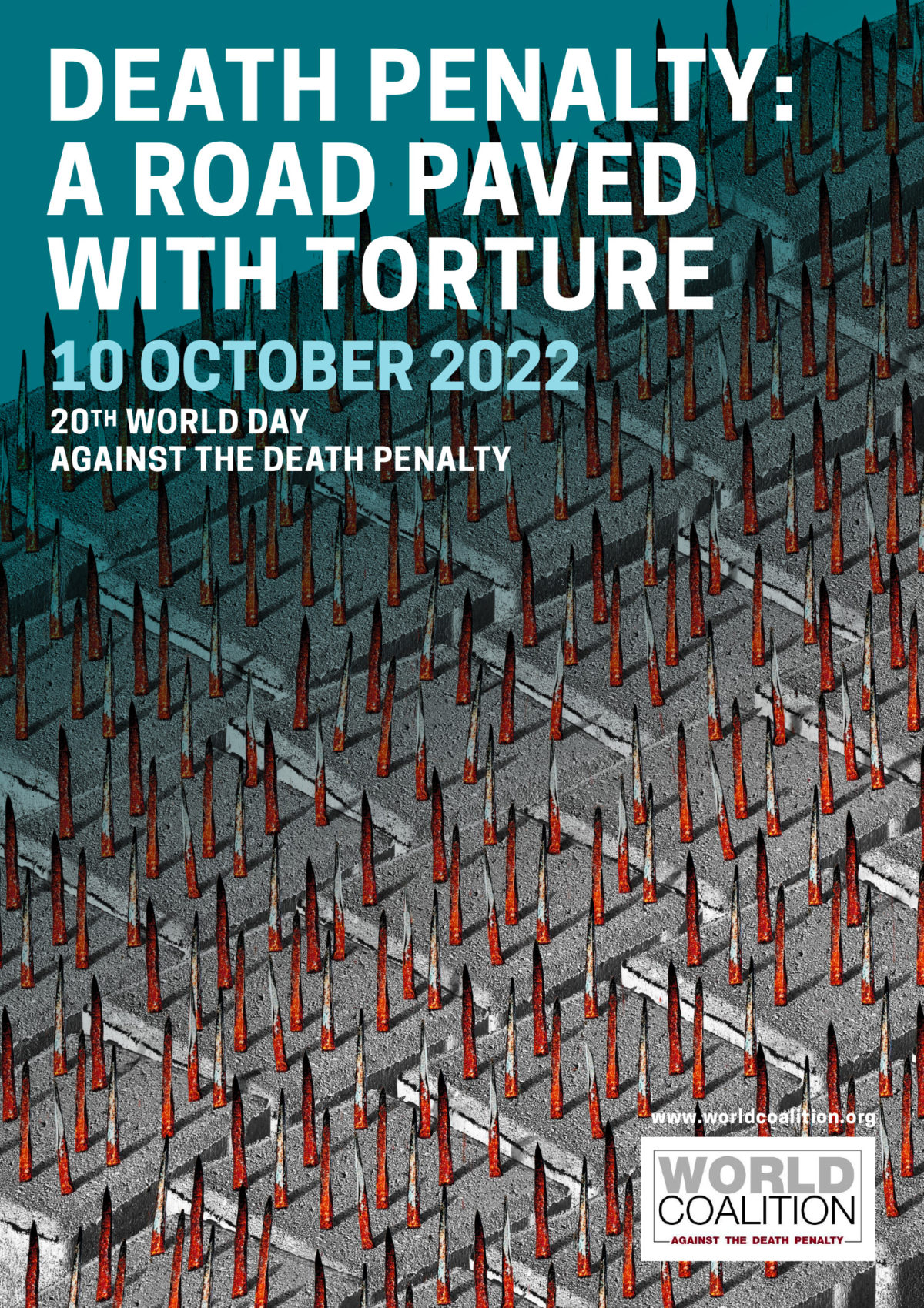
20th World Day Against the Death Penalty – Death penalty: a road paved with torture
on 10 June 2022
As the 20th World Day Against the Death Penalty is marked around the world, now is a time to consider and celebrate the gains the abolitionist movement has made over the past 20 years. Now, more than ever, abolitionist actors need to continue working towards the complete abolition of the death penalty worldwide, for all […]
2022
Cruel, Inhuman and Degrading Treatment and Punishment
Death Row Conditions
Document(s)
The death penalty and the prohibition of torture and other cruel, inhuman or degrading treatment or punishment
on 21 August 2021
2021
NGO report
World Coalition
Cruel, Inhuman and Degrading Treatment and Punishment
frMore details See the document
The signatory organizations are convinced that the death penalty is incompatible with the prohibition of torture and cruel, inhuman or degrading treatment or punishment, which is a peremptory norm of international law (jus cogens) and should thus be abolished. The death penalty is only tolerated by international law and standards to the extent that it may only be imposed for the most serious crimes and applied in a way that causes the least possible suffering. However, the signatory organizations believe that from the sentencing to the execution, the death penalty inevitably causes physical harm and psychological suffering amounting to torture or ill-treatments.
The present position paper documents the extent to which international and regional organisation have already recognised a violation of the absolution prohibitionof torture in the application and imposition of the death penalty.
- Document type NGO report / World Coalition
- Themes list Cruel, Inhuman and Degrading Treatment and Punishment
- Available languages La peine de mort et l'interdiction de la torture et des peines ou traitements cruels, inhumains ou dégradants

Article(s)
Drug policy reform, harm reduction movement and the death penalty abolition movement have much in common
By Aurélie Plaçais, on 26 June 2019
As 26 June is “Support. Don’t Punish” Global Day of Action, the World Coalition shares some insight on the 2019 Harm Reduction International Conference which took place in Porto end of April.
2019
Drug Offenses
Document(s)
The Death Penalty For Drug Offences: Global Overview 2023
By Harm Reduction International, on 28 March 2024
2024
NGO report
Drug Offenses
More details See the document
Published in 2023.
At the end of 2023, 34 countries retained the death for drug offences. In July 2023 Pakistan took the landmark decision to remove the death penalty from the list of punishments that can be imposed for certain violations of its Control of Narcotics Substances Act. This year also saw notable progress in Malaysia, which abolished the mandatory death penalty for all offences, including drug-related ones. This reform may impact the lives of over 700 people on death row for drug offences and bring the country one step closer to total abolition of capital punishment. In stark contrast to these positive developments is the record-high number of drug-related executions in 2023 at least 467. Of those executed, at least 59 people belonged to ethnic minority groups (in Iran and in Singapore), 13 individuals were foreign nationals, and six were women. These figures confirm that these groups are uniquely vulnerable to capital punishment as a tool of drug control. Despite not accounting for the dozens, if not hundreds, of executions believed to have taken place in China, Vietnam, and North Korea, the 467 executions that took place in 2023 represent a 44% increase from 2022.
- Document type NGO report
- Themes list Drug Offenses
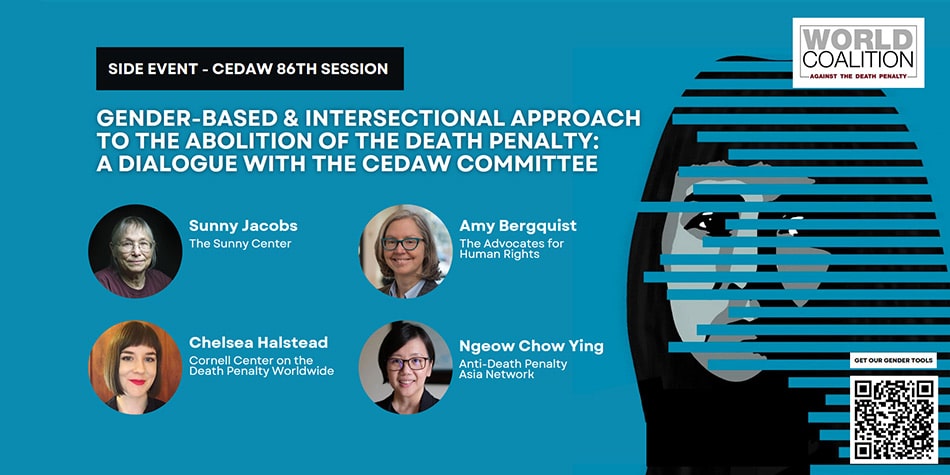
Article(s)
CEDAW experts welcome World Coalition members in the #CEDAW86 side event on gender and the death penalty
By Venus Aves, on 8 November 2023
On 22 October 2023, the World Coalition Against the Death Penalty (World Coalition) organized a closed-door side event on a gender-based and intersectional approach to abolition as part of the 86th session of the Committee on the Elimination of Discrimination Against Women (CEDAW).
2023
Gender
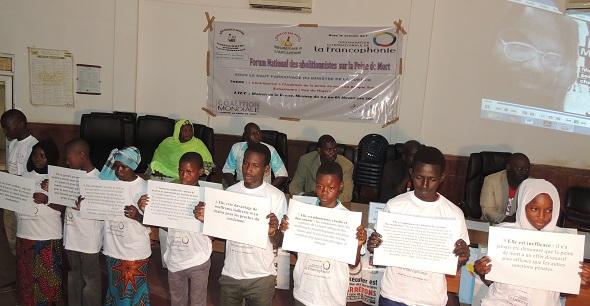
Article(s)
The abolitionists’ forum in Niger: a great success
By Garba Illou Almoctar and Elise Guillot, on 22 November 2016
The first Nigerien abolitionists’ forum on the death penalty was held in Niamey on November 4 and 5, 2016. The NGO Réseau progrès et développement humanitaire du Niger (REPRODEVH-NIGER) and the Nigerien Coalition Against the Death Penalty organised the event, which was sponsored by the Ministry of Justice, the National Commission on Human Rights and the World Coalition Against the Death Penalty. The initiative met with great success.
2016
Niger
Public Opinion
Terrorism
Document(s)
2022 World Day Report
By World coalition against the death penalty, on 12 June 2023
2023
Campaigning
World Coalition
frMore details Download [ pdf - 1557 Ko ]
On 10 October 2022, the World Coalition and abolitionists around the world celebrated the 20th World Day Against the Death Penalty (‘World Day’). Every year on World Day, the World Coalition highlights one problematic aspect of the Death Penalty.
- Document type Campaigning / World Coalition
- Available languages Rapport journée mondiale 2022
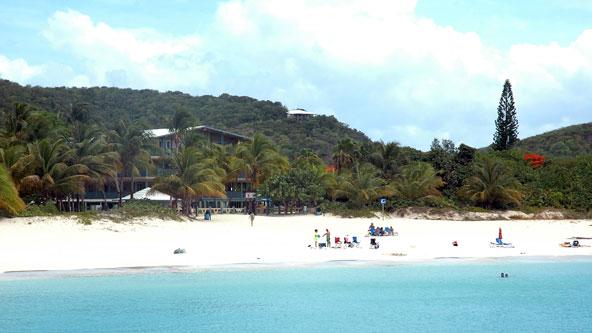
Article(s)
Suriname and Haiti to lead abolitionist way in the Caribbean
By Thomas Hubert (in San Juan, Puerto Rico), on 27 June 2014
The World Coalition held its 2014 AGM in abolitionist Puerto Rico and highlighted key regional developments in the fight against the death penalty, which remains on the books of many countries in the Greater Caribbean.
2014
Barbados
Haiti
Jamaica
Puerto Rico
Suriname
Suriname
Trinidad and Tobago
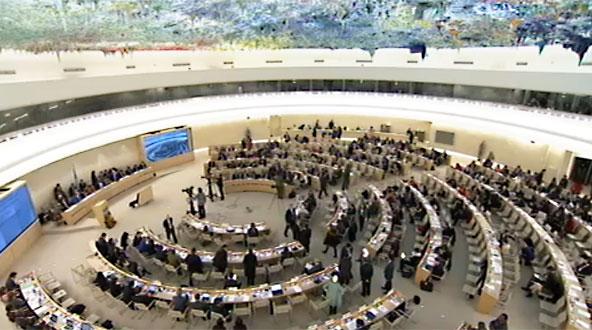
Article(s)
The United Nations Human Rights Council votes in favor of a new resolution on the death penalty
By Jessica Corredor, on 4 October 2017
After putting the death penalty at the heart of discussion, the 36th session of the United Nations Human Rights Council ended with the adoption of a resolution on the death penalty.
2017
Cruel, Inhuman and Degrading Treatment and Punishment
Article(s)
Europe launches diplomatic offensive against the death penalty
on 10 October 2008
Since 2007, October 10 is also the European Day Against the Death Penalty. Numerous European politicians have chosen this day to state their opposition to capital punishment.
2008
Lebanon
Uganda
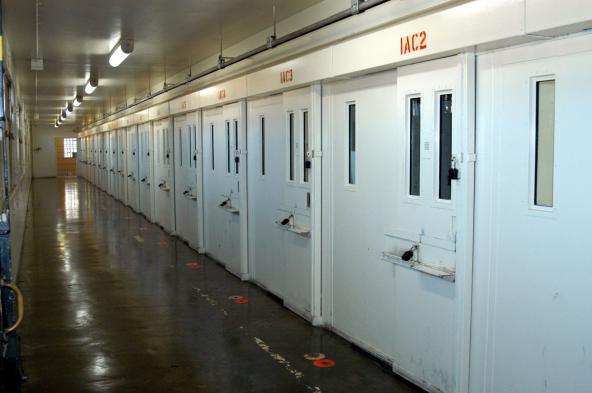
Article(s)
Abolitionists support death row survivors
By Thalia Gerzso, on 14 November 2017
On October 26, abolitionists all around the world celebrated the release of Cheng Hsing-Tse, originally sentenced to death in 2006. This successful outcome highlights the work of numerous organizationss which assist death row survivors.
2017
Innocence
Murder Victims' Families
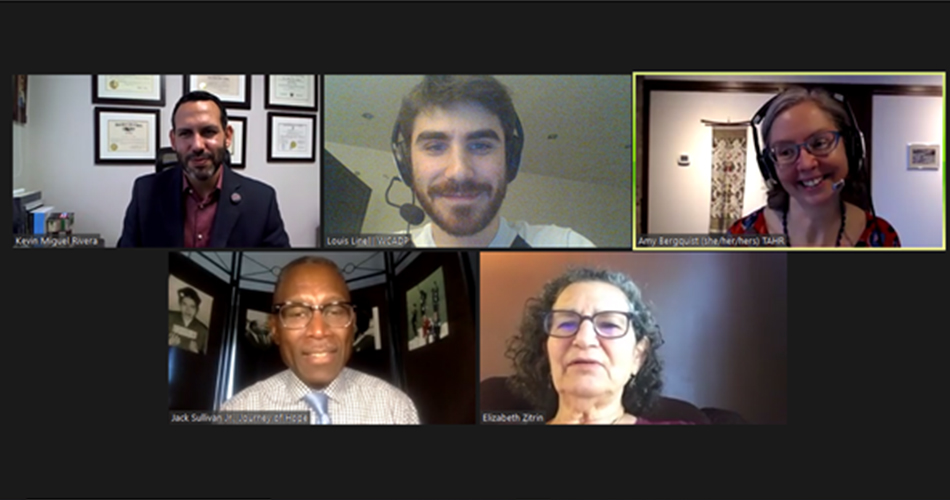
Article(s)
UPR 36th Session Debriefed on Facebook Live
By Louis Linel, on 17 November 2020
As the 36th session of the Universal Periodic Review (UPR) was being held under the auspices of the UN Human Rights Council from 02 to 13 November, the Advocates for Human Rights, a member organization of the World Coalition, facilitated Facebook live debriefings to cover the review of States that have not yet abolished capital […]
2020
Belarus
Jamaica
Liberia
Libya
Malawi
Maldives
United States
Article(s)
Mexican executed in Texas
on 5 August 2008
Jose Medellin, a Mexican sentenced to death in Texas, was executed on August 5 despite serious flaws in his trial. The Texas Coalition to Abolish the Death Penalty denounces an “irrevocable breach of international law”.
2008
Legal Representation
Mexico
United States

22nd World Day Against the Death Penalty – The death penalty protects no one.
on 12 June 2024
Observed every 10 October, the World Day Against the Death Penalty unifies the global abolitionist movement and mobilizes civil society, political leaders, lawyers, public opinion and more to support the call for the universal abolition of capital punishment.
2024
Public Opinion
Trend Towards Abolition

Article(s)
The United States Supreme Court’s End of Term Death Penalty Opinion is Against the US Trend Away from the Capital Punishment
By World Coalition Against the Death Penalty, on 14 July 2015
The World Coalition Against the Death Penalty takes the opportunity to support the call of the United Nations Special Rapporteurs on Summary Executions and on Torture, for the establishment of a federal moratorium on the death penalty.
2015
Moratorium
United States
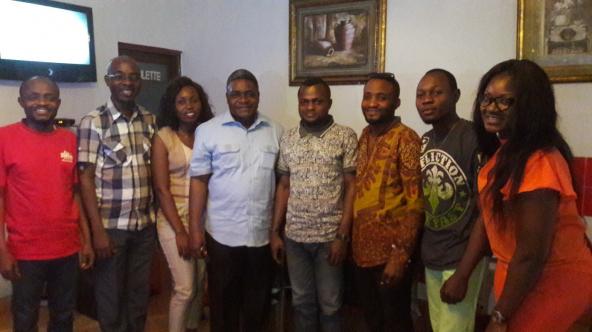
Article(s)
Democratic Republic of the Congo: the abolitionists organize workshops for journalists
By Thalia Gerzso, on 25 September 2017
Concerned by the population’s view on the death penalty, the Human Rights Defenders and Abolitionist Advocates in Democratic Republic of the Congo Network [Réseau des associations de défense des droits de l’homme et militants abolitionnistes de la peine de mort en République Démocratique du Congo (RADHOMA)] organized several training courses for journalists in the past few months.
2017
Democratic Republic of the Congo
Public Opinion
Article(s)
Teng Biao: Olympics an opportunity to put pressure on the Chinese authorities”
on 13 February 2008
Teng Biao is one of the rare activists who call for the immediate abolition of the death penalty from within China. In the past weeks, the police confiscated his passport and he received threats.
2008
China
Innocence
Public Opinion
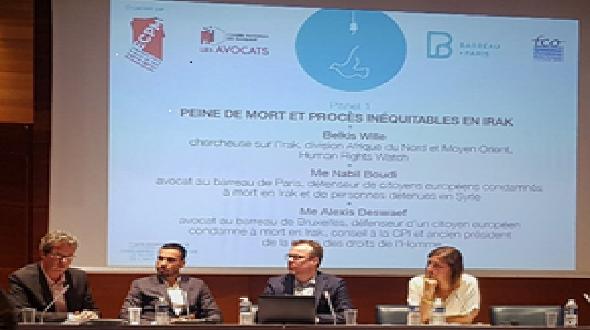
Article(s)
Unfair trials and the death penalty for terrorism in Iraq
By Majdoulin Sendadi, on 13 January 2020
From January until August 2019, Iraq executed more than 100 individuals accused of being affiliated with Daesh, according to Kurdish media network Rudaw.
2020
Iraq
Terrorism
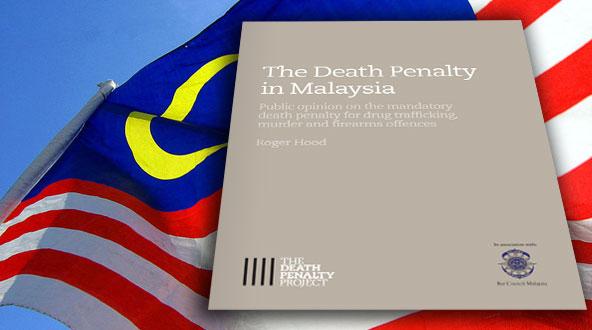
Article(s)
Malaysian popular support for mandatory death penalty overstated
By Thomas Hubert, on 10 July 2013
A detailed opinion survey commissioned by the Death Penalty Project in Malaysia found that while most people initially respond supportively when asked about mandatory death sentences, their opinion changes when confronted with practical cases and additional information.
2013
Malaysia
Public Opinion
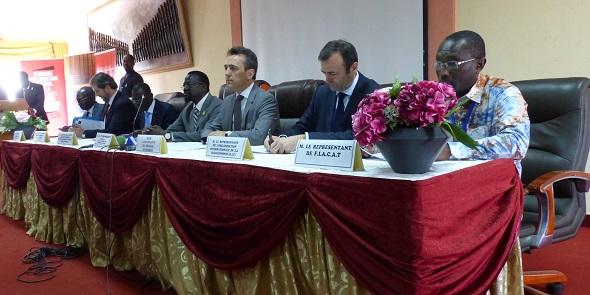
Article(s)
Parliamentarians from French-speaking Africa commit to the abolition of the death penalty
By Jessica Corredor, on 17 January 2017
Against the background of the drafting of a new Constitution in Burkina Faso including an article on the abolition of the death penalty, ECPM, the FIACAT and the Burkinabé Parliament have organised a regional parliamentary seminar in Ouagadougou on the death penalty in French-speaking countries of sub-Saharan Africa. The last known execution in Burkina Faso dates back to 1988, making it an abolitionist country in practice.
2017
Article(s)
The death penalty at the heart of ACHPR debates
on 18 May 2012
The 51st Ordinary Session of the African Commission on Human and Peoples’ Rights (ACHPR) was held in Banjul from April 18 to May 2, 2012. During the session, the Commission presented its “Study on the question of the death penalty in Africa” prepared by the Working Group on the death penalty of the ACHPR.
2012
Angola
Burundi
Gabon
Moratorium
Rwanda
Somalia
South Sudan
Sudan
Togo
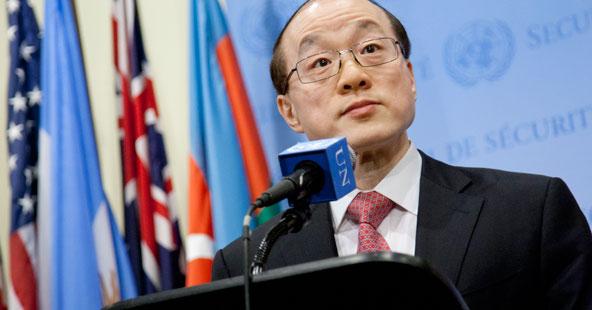
Article(s)
How far is China ready to reduce its use of the death penalty?
By Aurélie Plaçais, on 25 November 2013
The number one executioner in the world recently made national and international commitments to continuing to reform its death penalty, but how far is China really ready to go?
2013
China
Clemency
Drug Offenses
Terrorism
Document(s)
Uganda – Committee on the Elimination of Discrimination Against Women – Death Penalty – January 2022
on 12 January 2022
2022
NGO report
World Coalition
Uganda
Women
More details Download [ pdf - 243 Ko ]
This report addresses Uganda’s compliance with its obligations under the Convention on the Elimination of All Forms of Discrimination Against Women with respect to the death penalty. The report examines and discusses Ugandan death penalty laws and cases where women are sentenced to death row in Uganda, primarily for murder.
This report recommends that Uganda adopt a number of key recommendations to better align its death penalty practices with Uganda’s obligations to women under the Convention. These steps, among other things, include: (1) abolishing the death penalty and in the interim, limiting the death penalty to only the most serious crimes of intentional killing of another human; (2) ensuring proper gender-sensitive training in the judicial system and protecting women in conflict with the law when gender-based violence is involved; (3) developing and implementing programs to prevent gender-based violence and discrimination; and (4) ensuring fair access to counsel to women sentenced to death or at risk of being sentenced to death.
- Document type NGO report / World Coalition
- Countries list Uganda
- Themes list Women
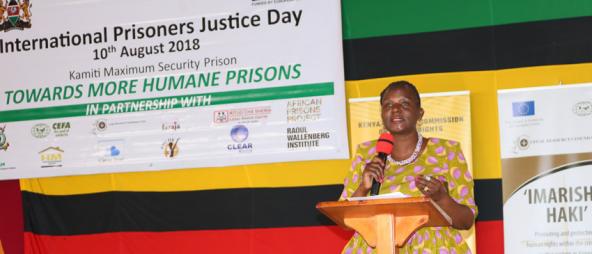
Article(s)
Kenya’s new taskforce to review death penalty laws
By Nicolas Chua, on 11 September 2018
In December 2017, two Kenyan men challenged the legality of capital punishment at the Supreme Court, which resulted in Chief Justice Marage declaring the « mandatory nature of the death sentence » unconstitutional. Following this groundbreaking statement, the Taskforce on the Review of the Mandatory Nature of the Death Penalty was appointed on March 15 2018.
2018
Kenya
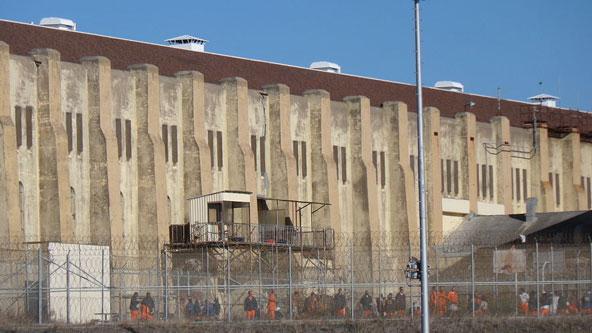
Article(s)
California ruling paves way for abolition of one of the world’s largest death rows
By Elizabeth Zitrin, on 18 July 2014
United States Federal District Court Judge Cormac J. Carney, who was appointed by former President George W. Bush, a strong supporter of the death penalty, ruled on 16 July that California’s death penalty system violates the US Constitution.
2014
Cruel, Inhuman and Degrading Treatment and Punishment
United States
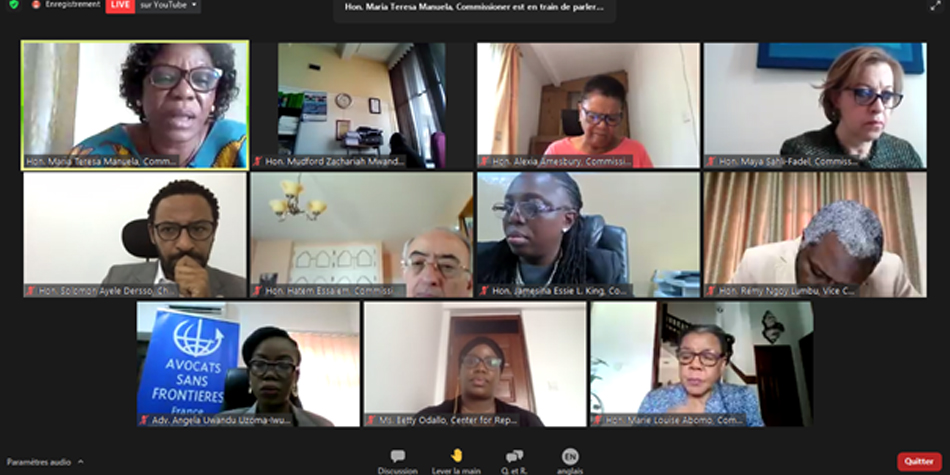
Article(s)
68th Ordinary Session African Commission on Human & Peoples’ Rights- Anti-Death Penalty Advocacy Continues
By Bronwyn Dudley, on 11 June 2021
The ACHPR (the African Commission on Human and Peoples’ Rights) met virtually for its 68th Ordinary Session from 14 April – 4 May 2021.
2021
Terrorism
Women
Document(s)
Kenya – Committee Against Torture – Death Penalty – March 2022
on 18 March 2022
2022
NGO report
World Coalition
Cruel, Inhuman and Degrading Treatment and Punishment
More details Download [ pdf - 393 Ko ]
Kenya has not carried out any executions since the late 1980s. Nonetheless, Kenya continues to hand down the death penalty as a sentence in criminal cases. Accordingly, this report recommends that the Committee Against Torture recommend that Kenya formally abolish the death penalty, commute the sentences of all persons on death row, and revise laws to remove capital punishment from the list of principal sentences. Kenya should further take steps to prohibit introduction of evidence obtained through torture and ill-treatment in criminal proceedings and to ensure that all persons at risk of being sentenced to death have access to well-qualified legal counsel with adequate funding for a thorough pre-trial investigation. Kenya should ensure that no person is removed to a country where they may be at risk of being sentenced to death, and should take concrete steps to ensure that conditions of detention for persons under sentence of death comply with the Nelson Mandela Rules.
- Document type NGO report / World Coalition
- Themes list Cruel, Inhuman and Degrading Treatment and Punishment
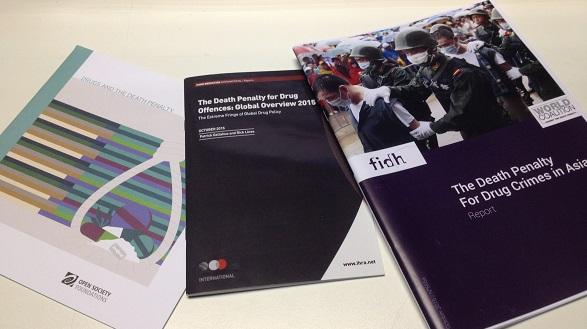
Article(s)
Explaining the Death Penalty for Drug Offences: the Best Reports
By Elisa Bellotti, on 2 November 2015
For October 10, many NGOs have published Reports analyzing, from different perspectives, the issue of the death penalty for drug offences. Read this brief presentation of the reports to facilitate the selection of the research that will best satisfy your thirst for knowledge.
2015
Drug Offenses
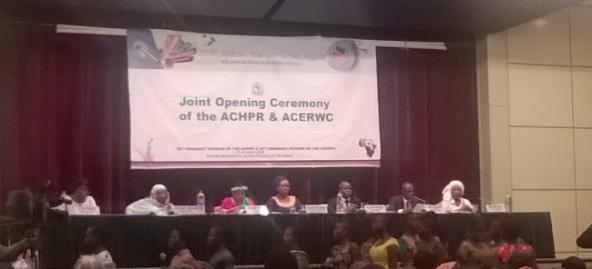
Article(s)
Renewed calls for the abolition of the death penalty at the NGO forum and the 59th Session of the ACHPR
By Jessica Corredor, on 25 November 2016
At the end of October, the civil society gathered for the NGO Forum preceding the 59th African Commission for Human and People’s Rights (ACHPR): an occasion to put the death penalty on the agenda of the African Commission and to make the calls for the abolition heard. Nonetheless, difficulties on the path towards the abolition in the African continent remain.
2016
Gambia
Moratorium
Public Opinion
Document(s)
The Use of the Death Penalty as a Bargaining Chip in Innocence Cases
By Claudia I. Salinas, California Western International Law Journal, on 1 February 2024
2024
Academic Article
United States
More details See the document
Published in 2023.
While 70% of the world’s countries have abolished the death penalty, also known as capital punishment, much of the United States continues to use it in its criminal legal proceedings.According to the Death Penalty Information Center, at least 190 people were exonerated prior to their fated execution date after being wrongly convicted and sentenced to death in the United States. There is no way to tell how many of the 1,562 people, who have been executed in the United States, were actually innocent. As there are wrongful convictions still happening today, it is no surprise that most countries consider the death penalty a human rights issue.
- Document type Academic Article
- Countries list United States

Article(s)
USA: showing the human face of the death penalty
By Tiziana Trotta, on 14 October 2015
A conference organized by Journey of Hope is just one among the many activities carried out around World Day against the Death Penalty in the U.S.
2015
Murder Victims' Families
United States
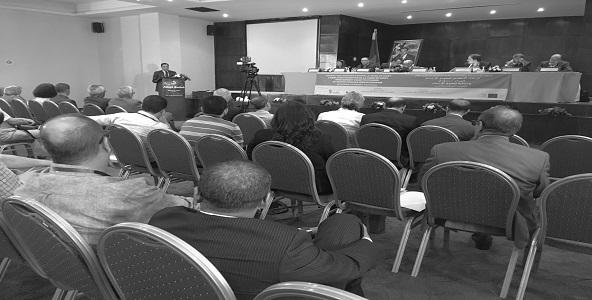
Article(s)
Abolitionist activities, criminal policy at the heart of abolition
By Clémentine Etienne, on 1 August 2018
On 30 June 2018, as a side event to the 2nd National Congress of Réseau des avocats contre la peine mort (RACPM), a conference was organised under the title “Death Penalty and Criminal Policy”. Morocco seemed eager to match its Tunisian neighbour, which had recently proposed, with the Commission on Individual Freedoms and Equality, abolishing the death penalty.
2018
Fair Trial
Morocco
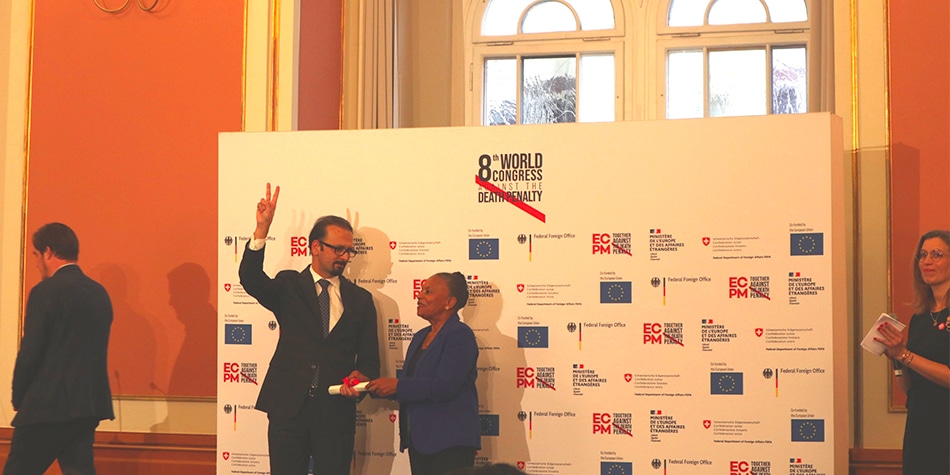
Article(s)
A Very Moving and Inspiring Closing Ceremony
By Dunia Schaffa, on 30 January 2023
The Closing Ceremony of the 8th World Congress celebrated people who play an immense role in the process of the abolition of the death penalty, with an awards ceremony and a tribute.
2023
Trend Towards Abolition
Document(s)
World Coalition Strategic Plan 2023-2027
By World Coalition Against the Death Penalty, on 22 August 2023
2023
World Coalition
Trend Towards Abolition
frMore details Download [ pdf - 455 Ko ]
- Document type World Coalition
- Themes list Trend Towards Abolition
- Available languages Plan Stratégique 2023-2027 de la Coalition Mondiale
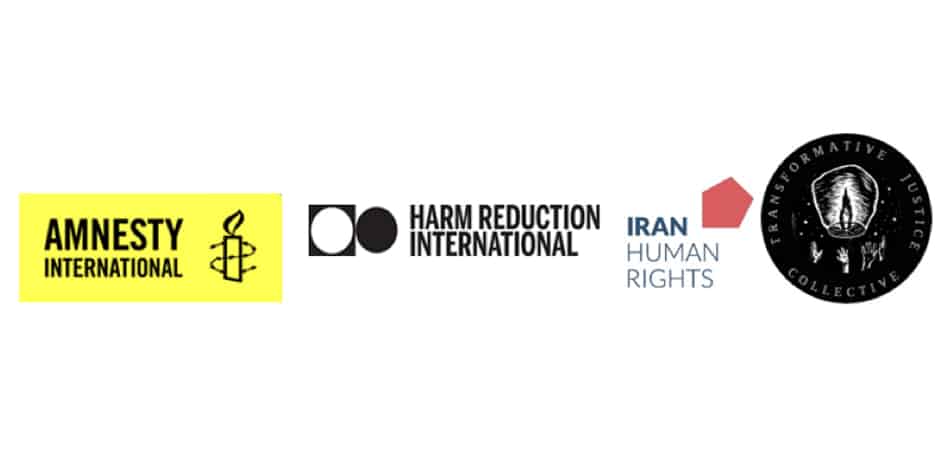
Article(s)
World Drugs Day: UNODC must act to stop the use of death penalty for drug-related offences and urge states to end executions
By Amnesty International, Harm Reduction International, Iran Human Rights, Transformative Justice Collective, on 27 June 2023
On 26 June, the UN Office on Drugs and Crime (UNODC) is marking World Drugs Day with the theme “People first: stop stigma and discrimination, strengthen prevention”, and launched another edition of the World Drug Report. Sadly, as has been the case over the years, UNODC has failed to raise concerns over the continued use […]
2023
Drug Offenses
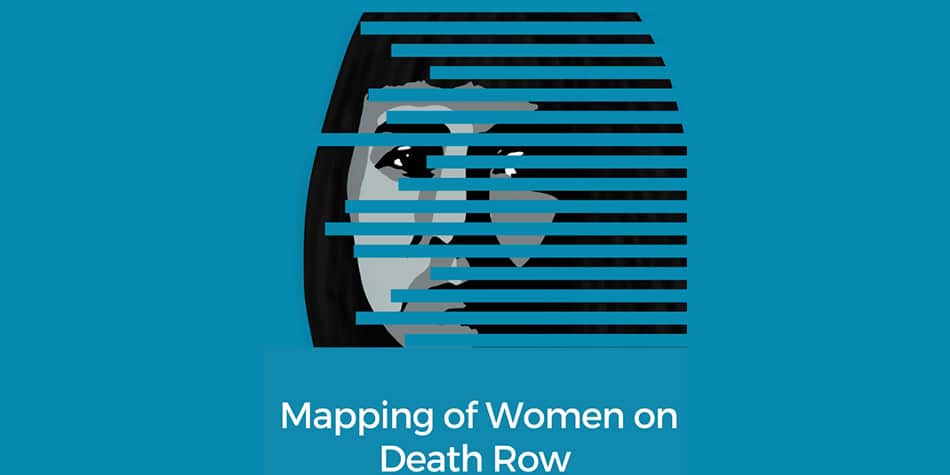
Article(s)
World Coalition Publishes Country Mapping Report on Women on Death Row
By World coalition against the death penalty, on 8 September 2023
To obtain a global view of existing data on women sentenced to death, the World Coalition carried out a systematization exercise of new data, compiled in a report published in August 2023.
2023
Women
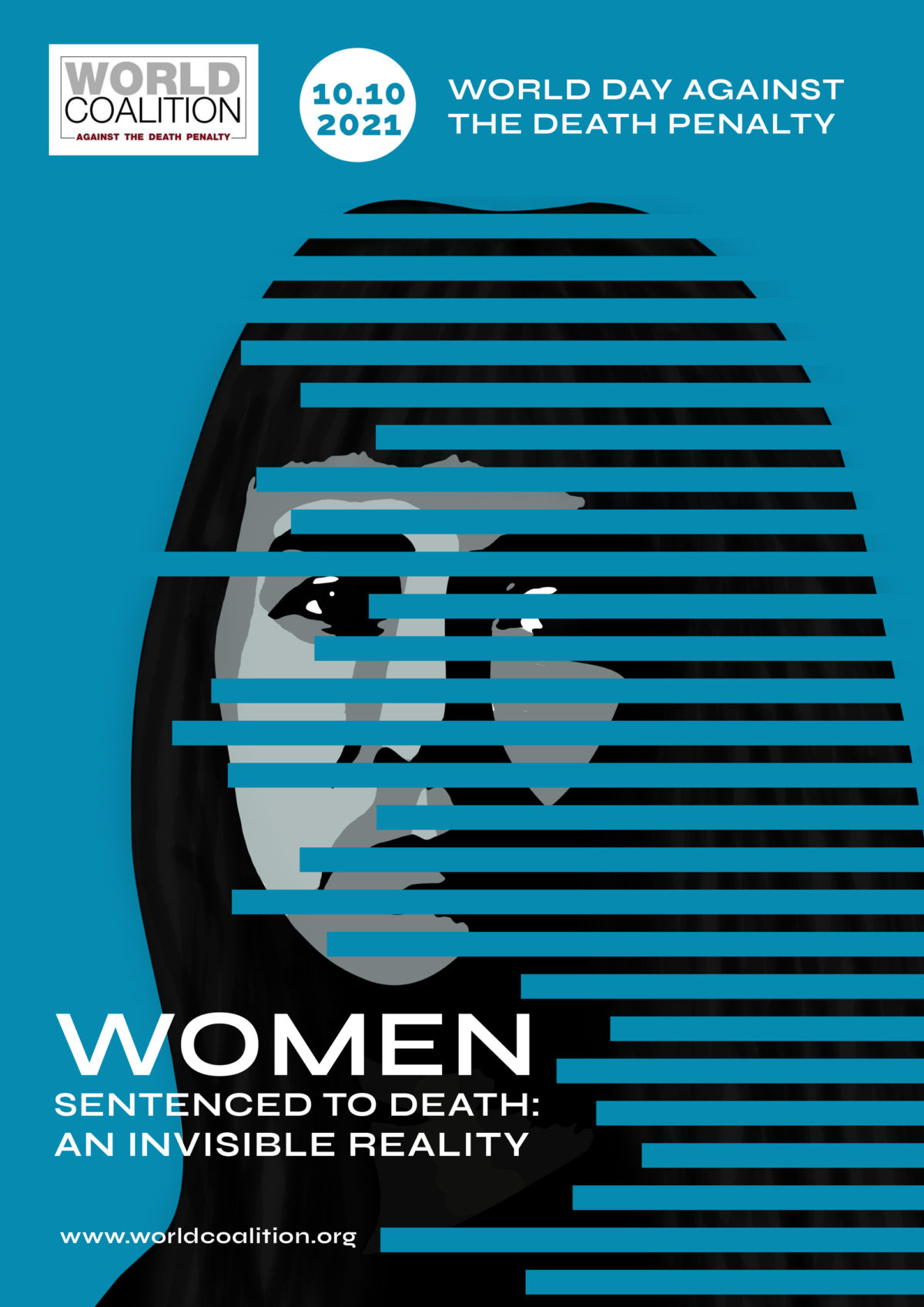
19th World Day Against the Death Penalty – Women and the death penalty, an invisible reality
on 10 June 2021
On 10 October 2021, the World Day will be dedicated to women who risk being sentenced to death, who have received a death sentence, who have been executed, and to those who have had their death sentences commuted, exonerated, or pardoned.
2021
Women
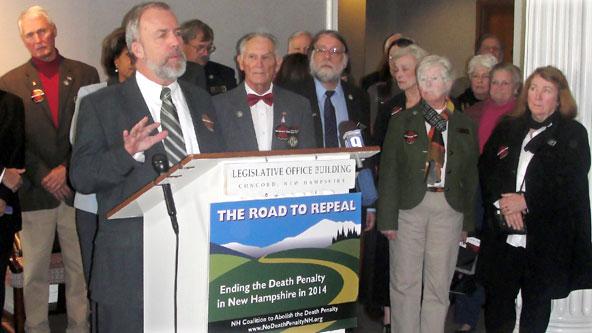
Article(s)
New conservative voices crucial in New Hampshire repeal campaign
By Thomas Hubert, on 26 February 2014
After a House committee passed a bill abolishing capital punishment on 11 February, State representative Renny Cushing explains the next steps as the World Coalition’s Steering Committee prepares to meet in New Hampshire in April.
2014
United States

Article(s)
Call for tenders for the contracting of travel management services
By World Coalition Against the Death Penalty, on 15 June 2021
The World Coalition requires travel management services, on a non-exclusive basis, for World Coalition staff, members and partners.
2021
Document(s)
Leaflet – World Day 2024 & 2025
By World coalition against the death penalty, on 10 June 2024
2024
Campaigning
World Coalition
arfrMore details Download [ pdf - 1325 Ko ]
Every 10th October, the World Coalition Against the Death Penalty and abolitionist actors worldwide celebrate the World Day Against the Death Penalty. It is an occasion to highlight the progress achieved in the global campaign for the abolition of capital punishment. In 2024 and 2025, the World Day will serve as an opportunity to challenge […]
- Document type Campaigning / World Coalition
- Available languages كتيب - اليوم العالمي 2024 و 2025Brochure - Journée mondiale 2024 & 2025
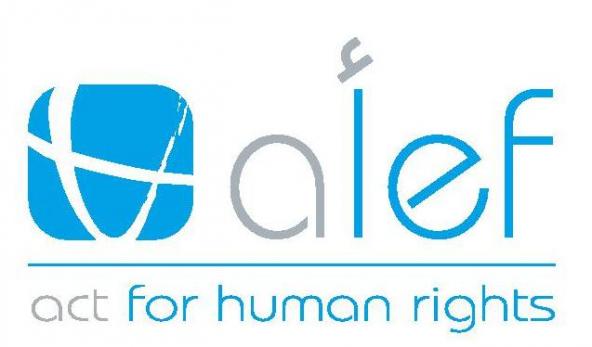
Member(s)
Act for Human Rights (ALEF)
on 30 April 2020
Act for Human Rights previously know as “Association libanaise pour l’éducation et la formation” core mandate is Monitoring and Advocacy. Its main concern are Human Rights issues, thus the organization has been advocating against death penalty. Currently our project activities are the following: Death Penalty Abolition Activities in Lebanon- ALEF – act for human rights […]
2020
Lebanon

Article(s)
Calling Upon the Council of Paris to Overhaul Bahrain-Owned Paris FC’s Subsidy
By Americans for Democracy and Human Rights in Bahrain, on 5 February 2021
This Tuesday, on February 2, 2021, the Council of Paris will announce its position on the renewal of the yearly €500,000 subvention allocated to the Paris FC.
2021
Bahrain
Cruel, Inhuman and Degrading Treatment and Punishment
Moratorium
Article(s)
Teaching abolition in Taiwan
on 9 December 2009
Tsou Tzung Han is a Taiwanese teacher who actively took part in educational activities organised around World Day Against the Death Penalty. He writes about his experience with his students.
2009
Public Opinion
Taiwan
Taiwan
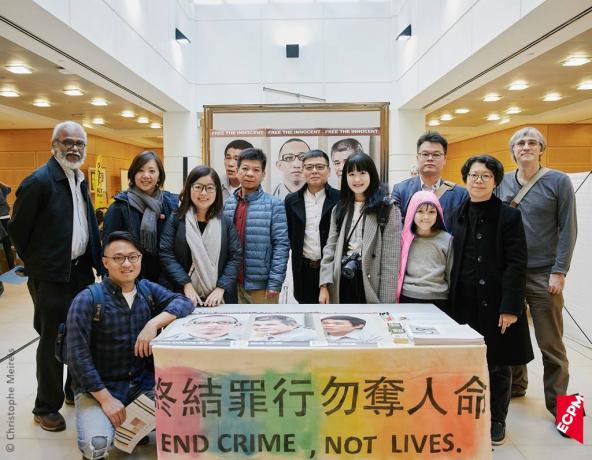
Article(s)
The Undercurrent: How we took part in the 7th World Congress Against the Death Penalty
By Wang Peiqi (Executive Secretary of the Taiwan Alliance to End the Death Penalty (TAEDP)), on 7 October 2019
As night fell, Xu Ziqiang and Zheng Xingze boarded a plane for Dubai together with a group of TAEDP members. Belgium was their final destination following this layover. This would be Ziqian’s and Xingze’s first time on European soil; they were preparing to take part in the World Congress Against the Death Penalty, held once every three years.
2019
Taiwan
Document(s)
Singapore’s death penalty for drug trafficking: What the research says and doesn’t
By Academia SG - Promoting Scorlorahsip Of/For/By Singapore, on 24 January 2024
2024
Academic report
Drug Offenses
Singapore
More details See the document
Published on October 7, 2023.
Of all retentionist countries, Singapore seems to be the most vocal about the need to execute individuals as a form of criminal punishment. MAI SATO (Monash University) reviews studies conducted or commissioned by Singapore’s Ministry of Home Affairs that claim public backing for and the effectiveness of the death penalty in managing drug trafficking. Sato finds that these studies provide far weaker evidence for using the death penalty for drug trafficking than their authors and officials citing them claim.
- Document type Academic report
- Countries list Singapore
- Themes list Drug Offenses
Document(s)
The Mercy Workers, Death Penalty Mitigation Specialists
By Maurice Chammah, The Marshall Project, on 2 March 2023
2023
Article
Legal Representation
United States
More details See the document
For three decades, a little-known group of “mitigation specialists” has helped save death-penalty defendants in the USA by documenting their childhood traumas. A rare look inside one case.
- Document type Article
- Countries list United States
- Themes list Legal Representation
Document(s)
Death by Design: Part 2
By The Wren Collective, on 23 January 2024
2024
NGO report
Legal Representation
United States
More details See the document
Published in December 2023.
In “Death by Design” Parts 1 and 2, Wren investigated the state of court-appointed capital representation in Harris County—the death penalty capital of the world. The second report examines why that poor representation has thrived, and the ways that the judges overseeing those cases have enabled it to continue that way.
Wren recommends a total overhaul to the system of capital representation for poor defendants in Harris County, with either the public defender absorbing those cases or the judges establishing a new, freestanding capital public defender that is independent from judicial oversight.
- Document type NGO report
- Countries list United States
- Themes list Legal Representation

Article(s)
Joint statement for the 71st Ordinary Session of the African Commission
By ECPM, FIACAT, World Coalition Against the Death Penalty, on 9 June 2022
Joint statement on the situation of the death penalty in Africa for the 71st Ordinary Session of the African Commission, signed by the FIACAT, ECPM and the World coalition.
2022
Congo
Côte d'Ivoire
Democratic Republic of the Congo
Kenya
Liberia
Malawi
Niger
Uganda
Document(s)
Maldives – Committee Against Torture (LOIPR) – Death Penalty – June 2022
By The Maldivian Democracy Network (MDN) , on 21 July 2022
2022
NGO report
World Coalition
Cruel, Inhuman and Degrading Treatment and Punishment
Maldives
More details Download [ pdf - 1443 Ko ]
This report addresses the Maldives’ compliance with its human rights obligations with respect to the death penalty. Despite its long-standing, de facto moratorium on executions, the Maldives sentenced two people to death in 2019, after sentencing no one to death in 2018.[1] At the end of 2019, there were 19 people on death row in the Maldives – three of whom had exhausted their appeals and five of whom were juveniles when the crime was committed.[2] The Maldives sentenced another individual to death in 2022, which represented the first time the country sentenced a foreign national to death.[3] The continued use of the death penalty in sentencing is particularly concerning given evidence of due process violations, including the use of torture to obtain confessions, the lack of effective and accessible complaint mechanisms for detained individuals, the lack of an independent judiciary, and the use of the death penalty as a sentence for crimes committed by juveniles.
- Document type NGO report / World Coalition
- Countries list Maldives
- Themes list Cruel, Inhuman and Degrading Treatment and Punishment

Article(s)
Calling on international bodies to condemn drug executions in Saudi Arabia and seek to stop them
By European Saudi Organization for Human Rights, on 1 December 2022
The European Saudi Organization for Human Rights and Harm Reduction International, and the World Coalition Against the Death Penalty along with 32 other NGOs have called on the International Narcotics Control Board and the United Nations Office on Drugs and Crime to act on urgent measures in response to the series of drug-related executions carried […]
2022
Drug Offenses
Saudi Arabia
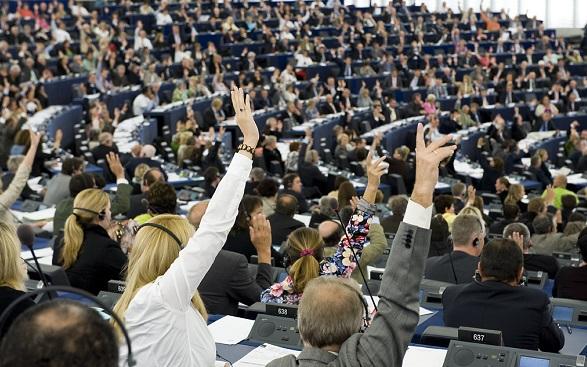
Article(s)
Executions for drug crimes: a violation of international law -international organizations
By Tiziana Trotta, on 15 October 2015
International organizations joined the 13th World Day Against the Death Penalty to stand against this cruel practice. United Nations, the European Union and the Inter-American Commission on Human Rights merged to claim that capital punishment is not the solution to deter drug crimes.
2015
Drug Offenses
Document(s)
Roper and Race: the Nature and Effects of Death Penalty Exclusions for Juveniles and the “Late Adolescent Class”
By Craig Haney, Frank R. Baumgartner and Karen Steele, on 20 October 2022
2022
Academic report
United States
More details See the document
In Roper v. Simmons (2005), the US Supreme Court raised the minimum age at which someone could be subjected to capital punishment, ruling that no one under the age of 18 at the time of their crime could be sentenced to death. The present article discusses the legal context and rationale by which the Court established the current age-based limit on death penalty eligibility as well as the scientific basis for a recent American Psychological Association Resolution that recommended extending that limit to include members of the “late adolescent class” (i.e., persons from 18 to 20 years old). In addition, we present new data that address the little-discussed but important racial/ethnic implications of these age-based limits to capital punishment, both for the already established Roper exclusion and the APA-proposed exclusion for the late adolescent class. In fact, a much higher percentage of persons in the late adolescent class who were sentenced to death in the post-Roper era were non-White, suggesting that their age-based exclusion would help to remedy this problematic pattern.
- Document type Academic report
- Countries list United States
Document(s)
The Maldives – Committee on the Elimination of Discrimination Against Women – Death Penalty – September 2021
on 20 September 2021
2021
NGO report
World Coalition
Maldives
More details Download [ pdf - 263 Ko ]
The Maldives’ continued use of the death penalty undermines government efforts and commitments to end gender-based discrimination. The death penalty invites discriminatory sentences against women for adultery and other crimes of sexual immorality, as well as for acting as accomplices to murder committed by male counterparts. Capital punishment promotes negative stereotypes about women and reinforces discriminatory gender roles. The possibility of facing the death penalty also discourages human rights defenders from civic engagement on a number of human rights issues, including women’s human rights.
- Document type NGO report / World Coalition
- Countries list Maldives
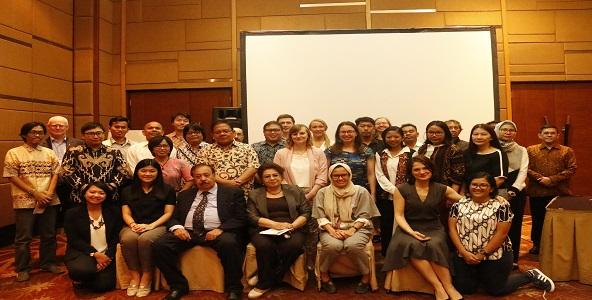
Article(s)
Dialogue on the death penalty during the 20th anniversary of the Reformasi
By Clémentine Etienne, on 27 June 2018
20 years after the end of the dictatorship, Indonesia is going through a period of legal changes and transition. What impact can abolitionist associations and NGOs working on the ground have in encouraging the actions of legal counsellors and civil society?
2018
Indonesia
Article(s)
Activists from Burundi, Rwanda and DR Congo join forces
on 3 December 2008
The Great Lakes Regional Coalition Against the Death Penalty held its first meeting on November 17 in Kinshasa. Its lobbying efforts have accelerated Burundi’s legislative process.
2008
Burundi
Democratic Republic of the Congo
Moratorium
Rwanda
Article(s)
What now for Mumia?
on 28 April 2008
On 27 March, a US federal appeals court overturned Mumia Abu-Jamal’s death sentence, but not his conviction for murder. His lead counsel Robert R. Bryan gives his reaction to the ruling and the next steps in America’s most high-profile capital case.
2008
Fair Trial
United States
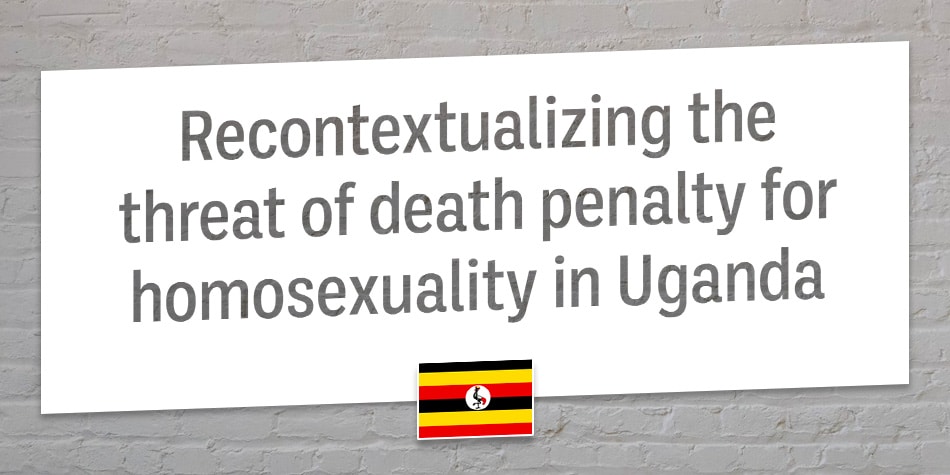
Article(s)
Recontextualizing the threat of death penalty for homosexuality in Uganda
By Méline Szwarcberg, on 2 May 2023
On Tuesday March 21, the Ugandan parliament passed a law that severely criminalizes people who have consensual same-sex relations. At the end of April, the law had still not been validated by the President Museveni. Among a range of harsh penalties, the law would allow the death penalty for the crime of « aggravated homosexuality […]
2023
Gender
Uganda
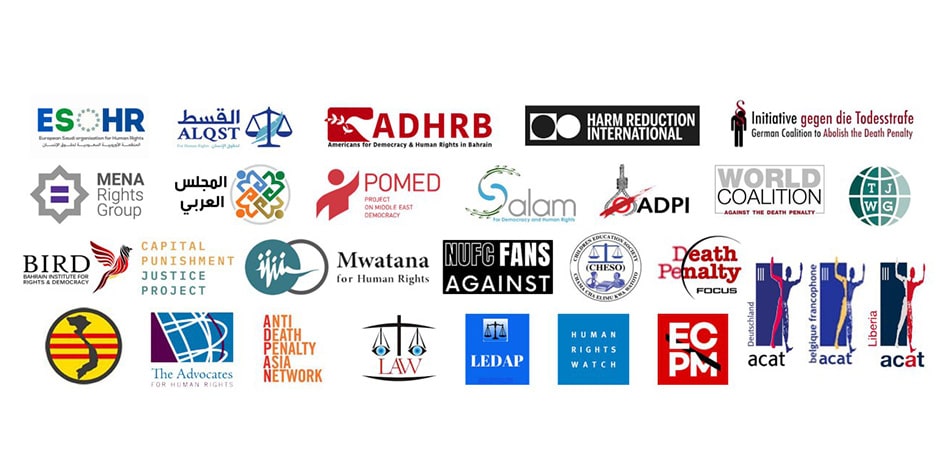
Article(s)
Escalating concerns over the lives of minors threatened with death in Saudi Arabia
on 3 May 2024
The undersigned organizations express their grave concern for the lives of minor defendants particularly the two young men, Yousif Al-Manasif and Ali Al-Mubaiouq, who are at imminent risk of execution in Saudi Arabia following confirmed information that the Specialized Criminal Court of Appeal (SCCA) has upheld their death sentences.
2024
Juveniles
Saudi Arabia
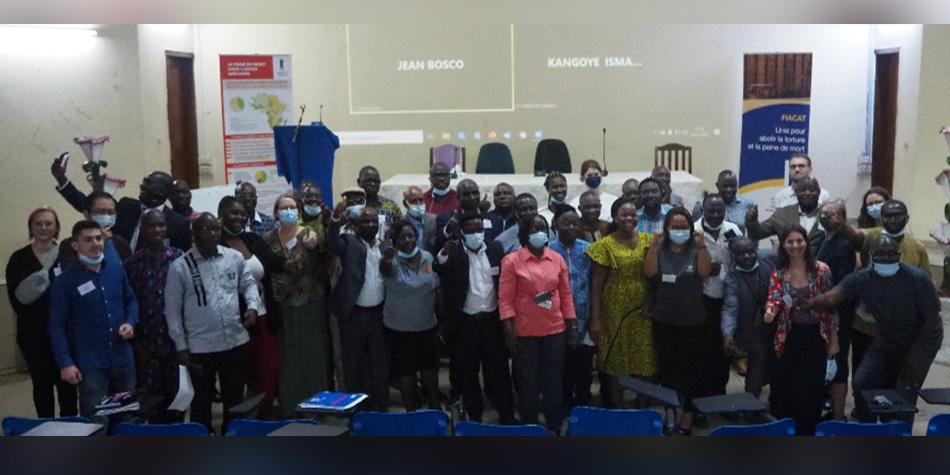
Article(s)
Capitalization workshop of the project for the abolition of the death penalty in sub-Saharan Africa
By Elise Garel, on 4 January 2022
Member organizations of the World Coalition Against the Death Penalty and African ACATs (Action des Chrétiens pour l’Abolition de la Torture) met in Abidjan (Côte d’Ivoire) for the capitalization workshop of Phase 2 of the project for the abolition of the death penalty in sub-Saharan Africa, organized on 29 and 30 November by the World […]
2022
Côte d'Ivoire
Moratorium
Public Opinion

Article(s)
Experts analyse the relationship between poverty and the death penalty
By Dr. Lina M. Torres Rivera, on 18 June 2018
The International Studies Programme Overseas Relations Assembly and the Institute for Human Rights Research and Promotion (INIPRODEH) organised a forum: The Death Penalty and Poverty on the 89th anniversary of abolition of the death penalty in Puerto Rico. Eminent figures from the abolitionist movement and academia reviewed and analysed research into this issue.
2018
Puerto Rico
Document(s)
State-Sanctioned Killing of Sexual Minorities: Looking Beyond the Death Penalty
By Mai Sato, Christopher Alexander - Eleos Justice and Capital Punishment Justice Project, Monash University, on 10 August 2021
2021
Academic report
Australia
Cruel, Inhuman and Degrading Treatment and Punishment
More details See the document
This report examines the extent to which states sanction the killing of sexual minorities. It looks beyond those countries that impose the death penalty for same-sex intimacy to the far greater number of countries in which state actors commission, condone, endorse and enable such killings.
He argues that the state-sanctioned killing of sexual minorities is often perpetrated well beyond the boundaries of the law, and even in countries that do not criminalise such conduct.
- Document type Academic report
- Countries list Australia
- Themes list Cruel, Inhuman and Degrading Treatment and Punishment

Article(s)
Marc Bossuyt: “Countries that have not signed up to the Protocol should feel isolated”
By Pierre Désert, on 27 June 2008
Marc Bossuyt was UN Special Rapporteur for drawing up the Second Optional Protocol to the International Covenant on Civil and Political Rights. He is now president of Belgium’s Constitutional Court.
2008
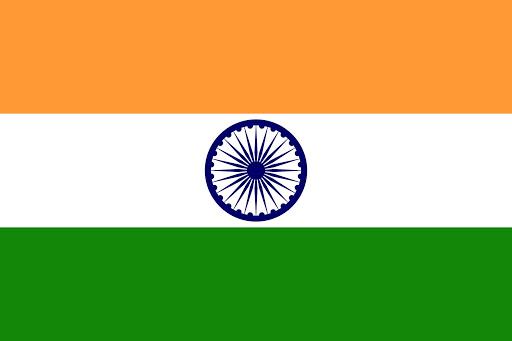
Article(s)
Punishing Sex Crimes: The Evolution of the Death Penalty in India
By Hédia Zaalouni, on 21 April 2020
The Death Penalty in India: Annual Statistics, an annual report published in January 2020 by Project 39A, details the application of the death penalty in India during the year 2019. It also describes developments in criminal justice and policy in the country.
2020
India
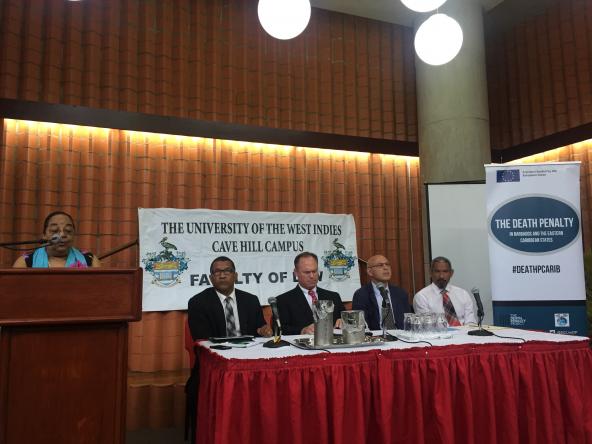
Article(s)
Launching of death penalty abolition project in Barbados and the Eastern Caribbean
By Jessica Corredor, on 25 July 2018
The 22 and 23 June 2018, the Greater Caribbean for Life, the Death Penalty Project, Saint Vincent and the Grenadines Human Rights Association, the University of the West Indies and the World Coalition Against the Death Penalty met in Barbados to launch their joint three year project in Barbados and the Eastern Caribbean.
2018
Barbados
Public Opinion
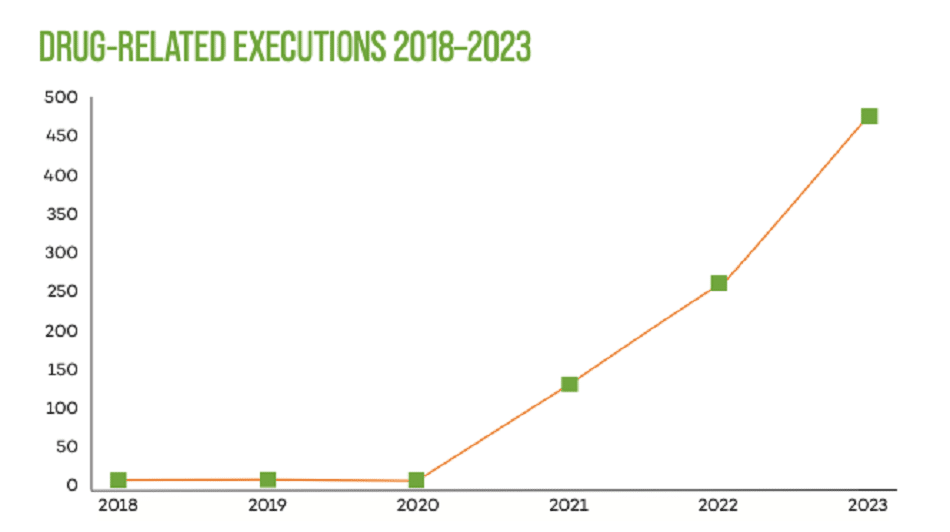
Article(s)
“Frightening” increase of executions in Iran
By World coalition against the death penalty, on 20 June 2024
Iran Human Rights (IHRNGO) reports that at least 243 people, including 10 women, have been executed in 2024, as of 15 June. In 2023, the number of people executed has increased from 582 to 834. At least 471 people were executed for drug-related offenses. This represent a 84% increase compared to 2022 (256).
2024
Drug Offenses
Iran (Islamic Republic of)
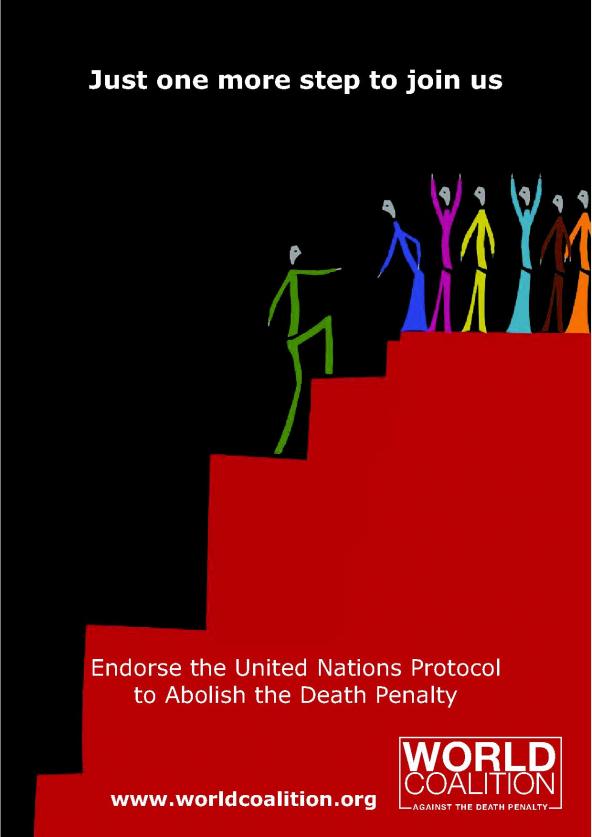
Article(s)
Second Optional Protocol: the only global treaty aiming at the abolition of the death penalty
By Pierre Désert, on 24 June 2008
The Second Optional Protocol to the International Covenant on Civil and Political Rights (ICCPR) is an international covenant adopted in 1989 by the United Nations General Assembly. It aims to abolish the death penalty definitively.
2008
Article(s)
Flurry of educational events on World Day Against the Death Penalty
on 6 November 2009
An abolitionist wave of marches, cultural happenings, petition signings and educational events swept across the world for the 7th World Day on October 10.
2009
Australia
Clemency
Democratic Republic of the Congo
India
Indonesia
Innocence
Public Opinion
Taiwan
United States
Document(s)
More Indicators of the Falling Support for the Death Penalty
By Talia Roitberg Harmon and Michael L. Radelet, California Western International Law Journal , on 1 February 2024
2024
Academic Article
United States
More details See the document
Published on October 12, 2023.
In the seminal Furman v. Georgia case from 1972, the U.S. Supreme Court (in effect) invalidated all death penalty statutes then inforce in American jurisdictions. After many states went back to their legislative drawing boards, some of the revised statutes were approved by the Court in 1976. At that time, Gallup found that 66 percent of the American public supported the death penalty, while 26 percent stood opposed. While support grew to 80 percent in 1994, a recent Gallup Poll from October 2022 shows that this figure has dropped to 55 percent. Recently, only 36 percent of Americans still support the death penalty given the alternative punishment of life imprisonment.
- Document type Academic Article
- Countries list United States
Document(s)
Death in the time of Covid-19: Efforts to restore the death penalty in the Philippines
By Jose M.Jose and Maria Corazon A.De Ungria, on 10 August 2021
2021
Academic report
Drug Offenses
Philippines
More details See the document
The Philippine Congress recently passed a bill amending the Dangerous Drugs Act of 2002 and reimposing the penalty of life imprisonment to death for specific-drug related offenses. House Bill No. 7814 also allows the presumption of guilt in certain drug-related crimes unless otherwise proven, thereby overturning the long-standing constitutional presumption of innocence.
The bill has been sent to the Senate for its concurrence and could only be several steps away before being signed into law by President Rodrigo R. Duterte. This paper discusses the ramifications of the new bill and the questioned timeliness of its passage when the country continues to have a large and overcrowded prison population and a significant number of deaths due to SARS-CoV-2 in Southeast Asia.
The government’s lapses in following the 2021 national vaccination plan became apparent in the 31 March 2021 assessment made by the congressional health panel on the government’s response to the pandemic.
From the authors’ perspective, the urgency of using the country’s limited resources to help medical frontliners and local government units prevent further infections and save lives should have outweighed the efforts exerted to pass a law that legalized the death penalty for the third time in the Philippines.
- Document type Academic report
- Countries list Philippines
- Themes list Drug Offenses

Article(s)
Philippines: House of Representatives must uphold international law obligations ahead of first death penalty vote
By Amnesty International & other organisations, on 19 February 2017
Nine international organisations are calling upon the Philippines to uphold its international obligations and not to restore death penalty in the country.
2017
Cruel, Inhuman and Degrading Treatment and Punishment
Philippines
Public Opinion
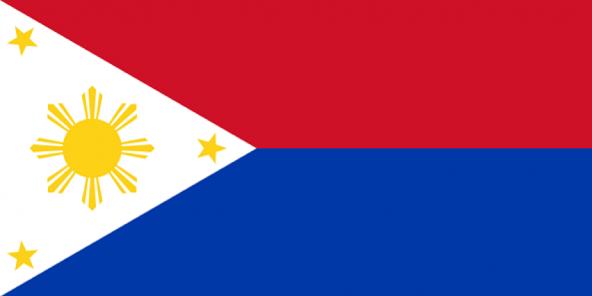
Article(s)
Philippines’ Major Setback as Abolitionist Leader in South-East Asia
By Dinda Royhan, on 23 January 2020
As a prominent leader in the campaign against death penalty in the South East Asia region for the last decade, Philippines’ reputation is endangered with President Duterte’s determination to reintroduce death penalty in the country. The country’s legislators are now on its second attempt to pass the bills.
2020
Philippines

